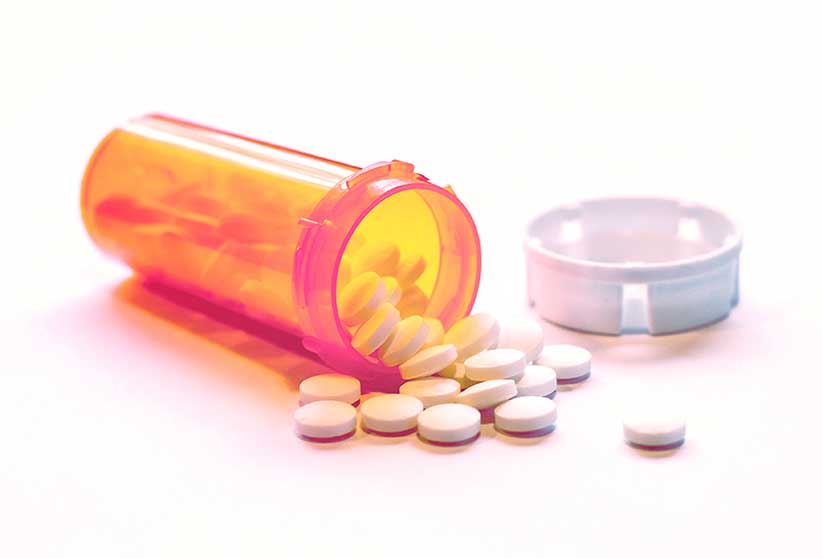Are Opioids Considered Narcotics?

Medically Reviewed By: Manish Mishra, MBBS
Although some may casually use the term “narcotics” to describe any illegal drug, the CDC states narcotics refer to opioids alone to help avoid any confusion.

According to the Centers for Disease Control and Prevention (CDC), the term “narcotics” refers to only opioids, although some use the term casually for illegal drugs. However, the CDC states narcotics refer strictly to opioids to help avoid confusion.
According to the United States Drug Enforcement Administration (DEA), prescription opioids are Schedule II controlled substances. This means opioid medications can be habit-forming, potentially leading to physical or psychological dependence.
Some are prescribed opioid drugs for pain management, as it may help those suffering from severe pain. However, your prescribing doctor will determine the strength of the pain reliever and monitor your dosage due to the high potential for abuse.
Examples Of Opioids/Narcotics
There are various opioids prescribed for pain relief. Some consist of:
- hydrocodone (Vicodin)
- oxycodone (Oxycontin, Percocet)
- oxymorphone (Opana)
- hydromorphone (Dilaudid)
- tramadol (Ultram)
- other opioids such as codeine or morphine
- synthetic opioids such as fentanyl
Side Effects Of Opioids/Narcotics
Although used for chronic pain, opioids can be abused. Even when used as prescribed, the drug may cause various side effects.
According to the United States Food and Drug Administration (FDA), some of the side effects of opioid may include:
- general impairment
- lightheadedness
- sleepiness
- blurred vision
- released inhibitions
- constipation
- drowsiness
- calming effects
- dizziness
- slowed heart rate
- sedation
How Do Opioids Affect The Body?
When this kind of pain medication is taken, it binds to the opioid receptors in the brain, depressing the central nervous system (CNS). Additionally acting as a CNS depressant, the opioid will affect the neurotransmitter gamma amino-butyric acid (GABA).
This releases dopamine in the brain and provides the effects of the drug which can consist of sedation and feelings of euphoria.
Dangers Of Opioid/Narcotic Abuse
There are many dangers associated with narcotics. Strong opioid medications are capable of causing life-threatening health concerns when abused, and these risks are further increased when opioids are combined with other substances.
Drug Interactions
Those who participate in drug use may consume more of the drug than prescribed or combine other substances with the opioid. Those taking opioid drugs should avoid other substances such as:
- benzodiazepines
- antihistamines
- alcohol
- stimulants
- other opioid prescription drugs
- certain antidepressants
Combining these substances can result in an unintentional overdose death due to the slowed breathing and loss of consciousness which can occur.
Opioid Withdrawal Symptoms
Those experiencing opioid withdrawal may find themselves suffering from a range of symptoms which may consist of:
- mental health issues such as depression or anxiety
- cravings for the drug
- sweating
- muscle cramps
- sleeping difficulty
- hallucinations
- mood swings
- tremors
Opioid Overdose
According to the National Institute on Drug Abuse (NIDA), some of the symptoms of an opioid overdose include:
- coma
- muscle weakness
- seizures
- confusion
- respiratory depression
- sudden death
If you suspect an opioid drug overdose has occurred, contact 911 immediately. When you seek urgent medical attention, healthcare professionals can act fast, even providing naloxone (Narcan) to help reverse the effects of opioid overdose.
Opioid Addiction Treatment
For those of you struggling with opioid misuse, consider finding treatment at Ohio Recovery Center. At our rehab center, we offer a variety of therapies and evidence-based care options like medication-assisted treatment with methadone and buprenorphine.
Contact us today to speak with one of our healthcare representatives who can assist you in learning more about our opioid use disorder treatment options.
- Centers for Disease Control and Prevention https://www.cdc.gov/opioids/basics/terms.html
- Food and Drug Administration https://www.fda.gov/drugs/information-drug-class/opioid-medications
- National Institute on Drug Abuse https://nida.nih.gov/publications/drugfacts/prescription-opioids
- National Library of Medicine: MedlinePlus https://medlineplus.gov/ency/article/000949.htm

